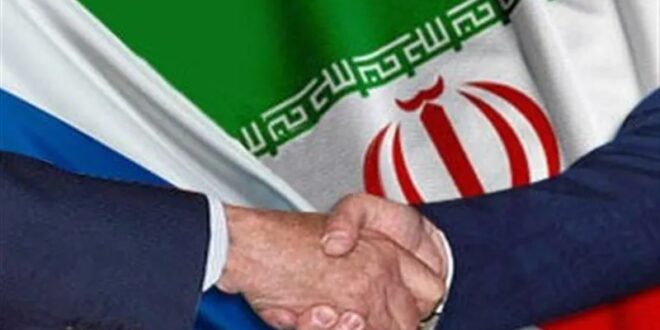Russia once viewed the G-20 group of leading economies as the world’s key cooperative forum. No longer. The November 15-16 meeting in Bali will not be attended by Vladimir Putin and there is therefore little chance that his isolation will be illustrated through face-to-face condemnations from Western leaders.
That’s not to say that Russia has no friends, just that it has fewer than before its all-out war on Ukraine began in February. North Korea, for example, has reportedly drawn closer to the Kremlin through supplies of military equipmentto aid its war of aggression. And Iran, a more significant power, now enjoys a detectably stronger relationship with Russia, with serious implications for the Middle East, nuclear non-proliferation, and sanctions evasion.
The sight of Iranian suicide drones striking civilian infrastructure in Ukraine and the mooted arrival of Iranian ballistic missiles to bolster Russia’s unprovoked war on a European neighbor meanwhile shows how the Kremlin benefits (and Tehran’s indifference to reputational damage.)
The warming of relations comes after decades, if not centuries of mistrust. This mutual hesitancy has been a hallmark of bilateral ties, with a sense of incompleteness always haunted their much-vaunted cooperation. Russia’s aggression in Ukraine and most of all its failure to produce a quick victory presented Iran with significant opportunities to exploit Russia’s weaknesses, and to push Putin’s regime to agree to more extensive cooperation in the economic and military realms. Iran’s nuclear ambitions likewise.
Before the war in Ukraine, Russia’s involvement in Iran’s revived talks on restoring the 2015 Joint Comprehensive Plan of Action (JCPOA) designed to end Tehran’s ability to build nuclear weapons, were characterized by the US and its allies as fairly positive. On several occasions, the Kremlin pressured Iran to stay in line and abstain from making further moves toward acquiring nuclear weapons, and so kill any scant hopes of restoring the nuclear agreement.
Russian calculus was clear — it opposed the proliferation of nuclear weapons in the Middle East, a region already beset with instability. Iran and Russia have long cooperated on numerous issues from the South Caucasus to the Caspian Sea, but the Islamic regime’s nature — its tradition of financing and helping to direct a variety of foreign militias — and its willingness to arm the enemies of its enemies, made it risky to assist its quest for nuclear technology.
The war in Ukraine may be changing all these calculations, and there’s a growing body of evidence suggesting this is already happening. First, since the first days of the full-scale invasion of Ukraine when Western resolve to oppose Russia became evident, the Kremlin resorted to blackmail, threatening to scupper the JCPOA negotiations in Vienna. In June, when the International Atomic Energy Agency (IAEA) supported a resolution demanding Iran’s cooperation with the UN, Russia voted against it. It also stayed silent when Iran switched off several IAEA cameras at the nuclear sites.
Russia’s game is clear. It cares deeply about its war against Ukraine and is effectively asking the West how much it cares about Iran’s nuclear program. This potential geopolitical horse-trading fits with Putin’s approach to foreign affairs, but takes little account of the US-led approach. So far the West has resisted, but Russia knows that the clock is ticking — Iran is getting dangerously close to the famous breakout moment when it will be impossible to reverse its progress toward nuclear weapons.
Amid this growing alignment, uncertainties in Iran-Russia ties do persist. Iranians are generally skeptical about Russia’s strategic goals and interests in the Middle East. Even on such issues as the provision of Iranian military drones to Russia, now confirmed by the top leadership, Iranian politicians are deeply divided about aiding a very obviously amoral war of conquest. Moreover, Iranians see Russia as an imperial power that for centuries hurt their country no less than the West; ordinary Iranians’ opinions on Russia have largely been negative; about twice as many Iranians blame the Kremlin for the war as blame the West, despite official propaganda.
Yet this narrative on distrust should not be overstated. Long-term developments signal the growth in the scope of military and economic cooperation. For instance, Iran and Russia plan to expand bilateral trade and introduce the Mir payment system for commercial transactions. Trade turnover, which stood at $4bn in 2021, could reach $6bn “in the near future”.
Russia is also eager to learn how Iran has managed for decades to survive the sanctions regime. The Islamic Republic has developed an extensive network of overseas front companies to hide its trading activities from Western sanctions enforcers, with significant success.
Iran expects Russia to return the favor. Its air force flies decrepit combat aircraft bought many decades ago from the Soviet Union and the West. Before 2022, Russia was hesitant to provide Iran with the newest Su-35 fighter jets. Now, hints in the Iranian media indicate that Russian calculus might be changing. Moreover, on November 8 Iran’s Nour News Agency reported that Russia’s National Security Council Secretary Nikolai Patrushev visited Tehran to arrange the purchase of Iranian ballistic missiles.
Iran and Russia are now unified by negatives. Both are sanctioned by the West and seek routes to evade those restrictions.
One route to achieving this would be improvements to the North-South trade route to connect Iran’s warm water Gulf southern ports to Russia through Azerbaijan’s territory. The success of the corridor is still uncertain, but the war in Ukraine and Russia’s changing perspective toward the Islamic Republic have encouraged the Kremlin to pay closer attention to the issue. Over the past several months, there has been a flurry of diplomatic activity between Moscow and Tehran to speed up the completion of the railway and road infrastructure. Putin’s July trip to Tehran covered precisely these topics.
 Eurasia Press & News
Eurasia Press & News




